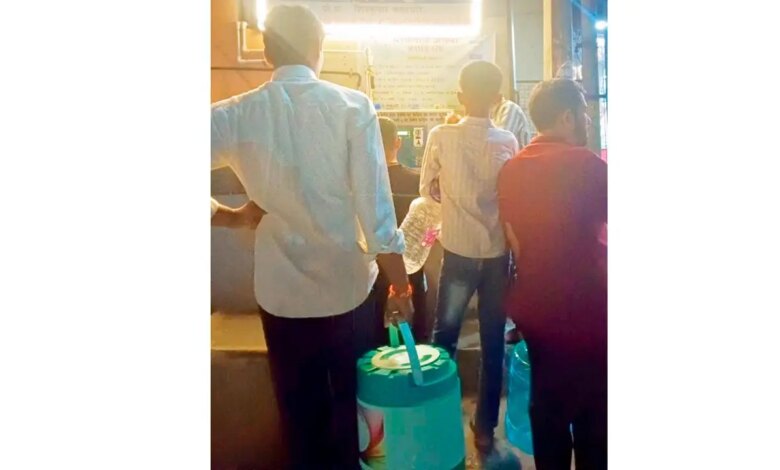Bacterial threat found in RO water as GBS cases rise in Pune

AMID the rising cases of Guillain-Barré Syndrome (GBS) in Pune, which have reached 166 to date with five fatalities, a hidden threat in purified water has come to light—neglected RO systems becoming breeding grounds for bacteria. Thousands of residents and commercial establishments in the city depend on these RO water bottles, but an inspection by the Pune Municipal Corporation (PMC) found that 19 out of 30 reverse osmosis (RO) water plants in affected areas were supplying non-potable water.
During a recent inspection, the civic body discovered the presence of coliform bacteria, including E. coli, in these plants, raising serious public health concerns. PMC Water Supply Department Chief Nandkishor Jagtap told mid-day, “The civic body has identified 14 out of 30 private RO water plants supplying contaminated water. We have issued notices to these RO plants and shut them down.”
The civic body discovered the presence of coliform bacteria, including E. coli, in RO plants
The official added that a recent water quality inspection in Kirkatwadi, Nanded, and Nandoshi—areas with high GBS cases—revealed unsafe drinking water in multiple RO plants. The Pimpri-Chinchwad Municipal Corporation (PCMC) has also launched a drive to test water samples from private RO plants in various locations.
PMC microbiologist and Chief chemist Prashant Jagtap said, “RO systems are designed to remove contaminants, including bacteria, but improper maintenance can lead to bacterial colonisation.” To ensure the effectiveness of RO systems and prevent bacterial contamination, regular maintenance is crucial, including timely filter replacements, periodic cleaning, and adherence to manufacturer guidelines.
Many commercial establishments and households in Pune rely entirely on RO water. RO plants supply 20-litre jars daily, and in some areas, water ATMs allow locals to purchase RO water using Rs 10 coins. People living in rental accommodations, chawls, and water-scarce areas depend heavily on these RO water ATMs, which may pose additional health risks.
Sarika Pandit, who works at an investment firm near Dhayari, said, “We order a 20-litre RO jar from local grocery stores daily because our office lacks a drinking water connection. We always thought RO water was the safest.” Yash Bendre, a bachelor living in Kalewadi, said, “I couldn’t install a purifier, so I used to buy RO water jars from a nearby shop. It was affordable, but after the GBS outbreak, I boil the RO water before drinking. Almost every household here depends on RO water.”
Source link





